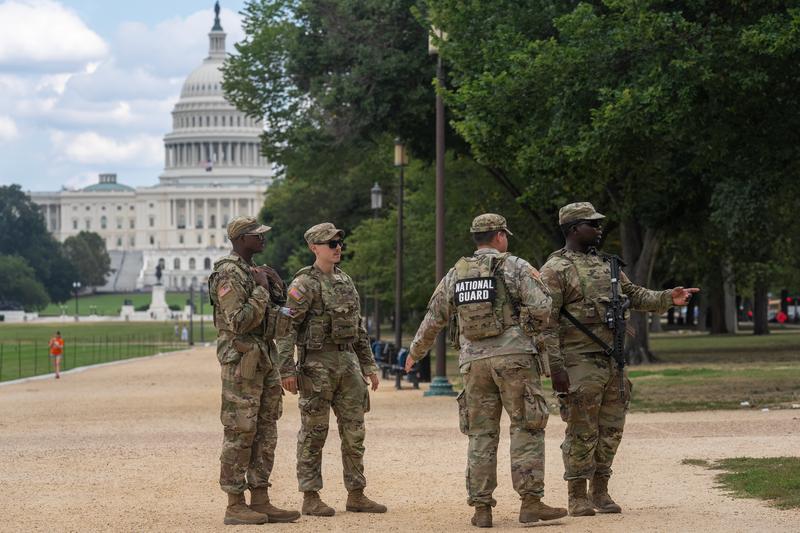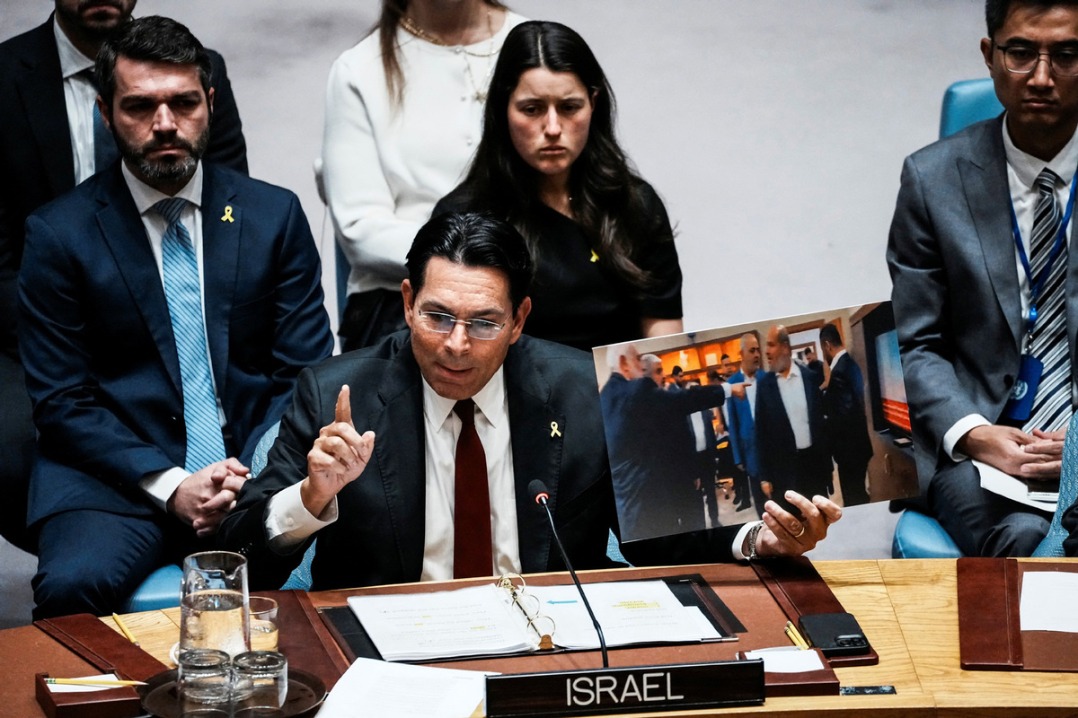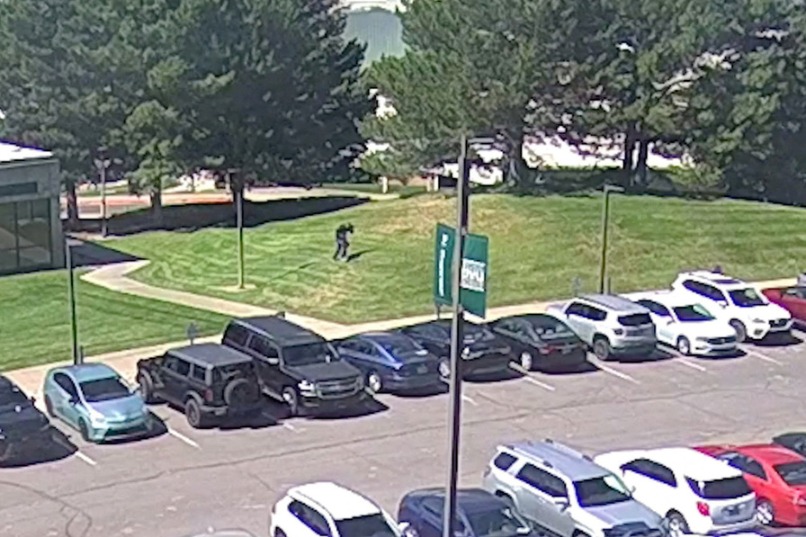Over 300 S. Korean and 10 Chinese workers return after US detention


More than 300 South Korean workers and 10 Chinese workers who were detained in the United States in an immigration raid have landed in Seoul on Sept 12, ending their ordeal, while questions linger over workers' safety at foreign-invested projects in the US.
The South Korean returnees, whose number totaled 316, returned on a chartered flight, enabling them to reunite with their families after a shocking incident last week that fueled tensions between South Korea and the US.
The workers' return came eight days after a US immigration crackdown at an electric vehicle battery plant under construction by a Hyundai Motor-LG Energy Solution joint venture in Bryan County, in the state of Georgia, that led to as many as 475 workers — including South Koreans and as well as workers from various other countries — taken into custody.
It was the largest single-site enforcement operation in the US Department of Homeland Security's history.
Ten Chinese workers, three Japanese, and one Indonesian national were also on the chartered flight that brought back workers from the US on Sept 12, according to The Korea Herald.
"These people are neither terrorists nor criminals. They were just doing their jobs because the country needs them and what happened to them? There must be something wrong," a family member of a detained South Korean worker told YTN at the Incheon International Airport.
Speaking to reporters after welcoming the returned workers at the airport, South Korean Presidential Chief of Staff Kang Hoon-sik said South Korea and the US have agreed to set up a working group to resolve the differences on visa interpretation and discuss the creation of a new visa category for South Korean professionals.
The workers arrested were known to have entered the US under various short-term visa programs as South Korea companies have been struggling to find ways to dispatch skilled workers to the US under the existing visa scheme.
All South Korean workers were released from detention except one, who chose to stay and pursue legal action.
Hyundai said the raid will delay the construction plans of the Georgia plant, part of a $7.6 billion factory complex, by two to three months.
Meanwhile, there is speculation that the incident could make South Korean and other foreign companies hesitant when it comes to making investment in the US.
"The real battle begins now," Choi Eun-seok, a spokesman for South Korea's opposition People Power Party (PPP), said in a statement on Sept 12. "Without fundamental solutions, such incidents could recur at any time."
South Korean Foreign Minister Cho Hyun said the detained workers returned to South Korea in the form of "voluntary departure" rather than deportation, after negotiations between the two governments.
Choi from PPP said the government cannot rely on mere verbal promises by the US and that Seoul needs to rigorously monitor to avoid any disadvantages when the returning workers re-enter the US.
In a statement on Sept 11, the Korean Metal Workers' Union and the United Auto Workers strongly condemned the US' mass arrest and called for the release of the remaining workers from other countries.
"While receiving investment from Korean companies, the US government launched a militarized operation targeting the workers at those sites," the statement said.
The detention of South Korean workers affected South Korean President Lee Jae-myung's approval rating, which dropped five percentage points from last week to 58 percent, a survey by local pollster Gallup Korea showed on Sept 12.
The most common reason for the negative evaluation was "diplomacy" at 22 percent, which is presumed to be affected by the raid.
"Although these individuals were released through intergovernmental negotiations and are returning to South Korea via a chartered flight, the unprecedented incident has drawn significant attention," Gallup Korea said in a report, adding that it also raised concerns about the need for measures to prevent recurrence and improve systems related to investment in the US.
South Korea is working to finalize its trade deal with the US after the two sides reached a framework agreement in July, under which it pledged to invest $350 billion in the US in return for a reduction in tariffs to 15 percent from 25 percent.
Just days before the raid, when meeting with US President Donald Trump in Washington, Lee pledged to invest another $150 billion in the US, taking the total amount to $500 billion.

































